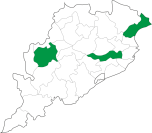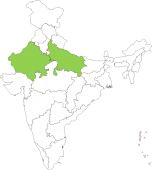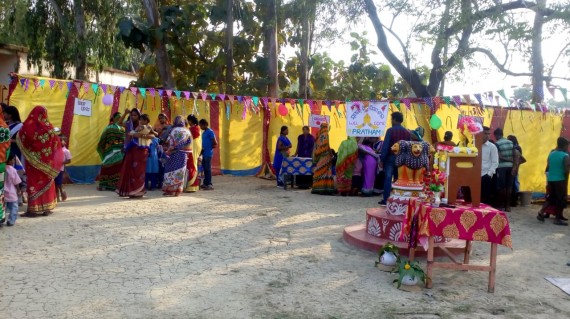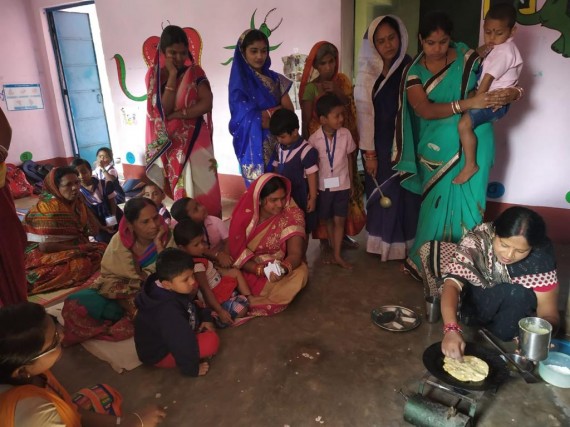
ASER Centre
Evidence for action- Home
- About Us
- ASER Survey
- Research & Assessment
- Capacity Building
- Publications & Reports
- ASER Reports
- ASER Data Over Time
- ASER 2022: Chhattisgarh
- ASER 2022 'Young Children'
- ASER 2022
- ASER 2021: West Bengal
- ASER 2021: Chhattisgarh
- ASER 2021
- ASER 2020 Wave 1
- ASER 2020 Digital Recheck
- ASER 2020: Karnataka
- ASER 2019
- ASER 2018 'Young Children'
- ASER 2018
- ASER 2017
- ASER 2016
- ASER 2015: Maharashtra
- ASER 2015 : Punjab
- ASER 2014
- ASER 2013
- ASER 2012
- ASER 2011
- ASER 2010
- ASER 2009
- ASER 2008
- ASER 2007
- ASER 2006
- ASER 2005
- Odisha Tribal Study 2022
- ASER Health Report
- Study on Access, Transition and Learning in Secondary Education
- India Early Childhood Education Impact Study
- Urban Ward Surveys
- Bihar Elementary School Study
- Inside Primary Schools
- PAHELI
- External Publications
- ASER Reports
- Data Query
- Impact
RESEARCH AND ASSESSMENT ACTIVITIES IN OTHER SOCIAL SECTORS
Adaptations to Health and Nutrition Service Delivery during COVID-19 in Odisha: Phone Survey with Frontline Workers, 2020
The project was result of a partnership between several research partners, who collaborated to collect data on health and nutrition service delivery to inform policies and improve responses to challenges posed by COVID-19 restrictions. These six organizations worked in a coordinated manner, across seven different states- Bihar, Chhattisgarh, Madhya Pradesh, Odisha, Tamil Nadu, Telangana, and Uttar Pradesh - to gather learnings directly from frontline workers on how they were adapting to the situation.
Partners: ASER Centre-Pratham Education Foundation, CARE India/ Oxford Policy Management Ltd, Evidence for Policy Design, IFMR LEAD KREA, International Food Policy Research Institute and National Institute of Nutrition
Objective: To capture frontline level or local management adaptations of health and nutrition service delivery, with a focus on positive adaptations to cope with the challenges posed by COVID-19, to inform policies and programmes.
Scope: As part of this collaborative effort, ASER Centre conducted cross-sectional, phone-based survey with AWWs and ASHAs (approximately 700 frontline workers) across 9 districts in Odisha, given on ground capacity. This effort provided evidence on ground level adaptations and challenges to be shared at state and national levels, providing a better understanding on how to support frontline workers to improve the delivery of health and nutrition services.
Preliminary findings: Report led by International Food Policy Research on Tackling Nutrition in Odisha Looking Back, Looking Forward (https://poshan.ifpri.info/2020/12/24/tackling-nutrition-in-odisha-looking-back-looking-forward/) highlights recent phone-based frontline worker survey in Box12, Page 37.
Enhanced Preschool Program (EPP)
The evaluation of the first phase (see Early Childhood Development: Impacting at Scale) was completed through a Cluster Randomised Control Trial across approximately 1400 children in 192 villages of Cuttack, Balasore and Balangir in early 2018.
Some of the key assessment tools used at baseline, midline and end line were- Bayley Scales of Infant and Toddler Development, Ages and Stages Questionnaire, Mother and Child Diet Tool (developed by ASER Centre, Pratham).
Following the first phase of the project, a transition phase (May-June 2018) in the form of group sessions with the same mothers and their children (who were now entering 3 years of age) was done, before the commencement of phase 2 of the program.
The second phase, Enhanced Preschool Program (EPP) offered an opportunity to track the development trajectory of the same cohort of children as they enter the age group 3-6 years and are enrolled in the Anganwadi system
Duration: 2018 onwards
Location: Cuttack, Balasore and Balangir; Odisha
Partners: Institute of Fiscal Studies (IFS), Yale University, Pratham Education Foundation-ASER Centre, Centre for Childhood Care and Education Department (CECED), Morsel
Funders: Jacobs Foundation, Cowles Foundation, ELP World Bank, Dubai Cares
For this phase, Pratham has collaborated with the Department of Women and Child Development, Government of Odisha, to implement the EPP in Anganwadi Centres (AWCs) of the sample villages. The 192 villages have been randomized into two-
• Control
• Treatment [Intervention: Integrated Child Development Service (Nua Arunima) enhanced curriculum]
Aim: Promoting development of the child in various dimensions, such as:
• Language, cognition, executive function, motor and social and emotional development, as well as early literacy and mathematics, general knowledge of the world and creativity;
Project Update : The baseline assessment was completed in early 2018 coinciding with the endline of the previous phase. The program was rolled out in July 2018. The fourth quarter of the intervention is ongoing currently. The midline assessment has begun from April 2019 and endline assessment is expected to be done in January 2019. Feedback channels have been established to enable continuous development of program delivery across the Central, State and field teams.
• Play- based activities are the focus of the learning process;
• A parental and community engagement component is also included in the programme to maintain a continuous contact with the parents and help them contribute in their children’s development, ensuring that they reach their full potential.
Programme Structure: A three-tier implementation model at the state-level comprising of 4 Super Mentors, 9 District Coordinators and 108 Pratham Mentors has been set up by Pratham to ensure effective implementation and monitoring of the intervention. The training and capacity building of the Pratham teams and orientation of the front-line workers was done every quarter over the past 12 months, for smooth delivery of the programme.
Documents: Project description

Exploratory study to test the applicability of the ASER approach to the health sector in India
This project is an exploratory study to test out the merit in and need of the ASER approach used in the education sector to the health sector in India. The first phase of this work was focused on getting experts from the field of policy, practice and research together to discuss the feasibility and need of ASER approach in health sector, which, unlike the education sector, has always had a focus on outcome measures.
The basic question brainstormed was: “Based on the ASER approach, are there any measurable and actionable indicators in health that can be identified to enable ordinary people to get involved in assessments at scale?” The enquiry areas for the study were selected as :
- Mother and Infant and Young Child Food, Nutrition and Health (MIYCN) (for children below 1 year of age)
-Adolescent Health and Nutrition
Assessing not just “what” people do or don’t do but also “why” was decided as actionable pathways to better implementation of social sector programs and performance indicators. Hence the key dimensions which were covered included:
Knowledge: What do people know about the issue/s. This is to identify gaps in the knowledge of the best practices
Practice: What people do and Why? What are the actual practices that people follow in their day-to- day life and why?
Access: Are people aware of the relevant services- policy provisions? Do they access them? Why (or why not)? Identifying the level of participation.
Duration: 2016 - Present
Partners: Bill and Melinda Gates Foundation
Location: August to October 2017: District level surveys in Jaipur, Rajasthan & Rae bareili, Uttar Pradesh; block level survey in Bhuj, Gujarat ; February to March 2019: District level surveys in Sambalpur, Odisha & Udupi, Karnataka
The preliminary phase consisted of extensive literature review, framework design anddefining enquiry areas. Post this phase, pilot exercises were conducted across Rajasthanand UP. Feedback and experiences from the field post each pilot were incorporated intothe final development of the survey tool.
From August to October 2017, 2 district level surveys in 60 villages each were conducted in Jaipur, Rajasthan and Rae Bareli, Uttar Pradesh, with paid surveyors.Following these pilots, a block level survey was conducted in 40 villages of Bhuj, Kutch district of Gujarat in December. Like the ASER partnership model, unpaid student volunteers from the Department of Social Work, Krantiguru Shyamji Krishna VermaKachchh University were engaged for the Bhuj pilot survey.
The pilot surveys in this phase covered a sample of 1,234 children in Jaipur, 2,086 in the Rae Bareli District and 594 in the Bhuj.
In the subsequent phase, from February to March 2019, 2 more district level surveys were conducted. Surveys were conducted in 60 villages each, in Sambalpur district of Odisha and Udupi district of Karnataka by unpaid volunteers following a modified ASER sampling strategy. The survey covered around 350 households with 0-1 year old children in Sambalpur and around 610 in Udupi.
Data from these surveys will be used to generate policy briefs, district level report cards and academic papers.
The paper "Exploring the Applicability of a Rapid Health Assessment in India" has now been published in World Academy of Science, Engineering and Technology International Journal of Medical and Health Sciences Vol: 13, No:3, 2019.
It can now be accessed here

RESEARCH AND ASSESSMENT ACTIVITIES IN OTHER SOCIAL SECTORS
Scalable policies for Early Childhood Development
The aim of this study is to develop and test scalable interventions that promote child development and ultimately improve adult outcomes, thereby breaking the cycle of poverty.
The study consists of two projects, both of which implement a stimulation programme that focuses on improving the interactions between mothers or principal caregivers and their infants/children. The programme follows a systematic, weekly curriculum based on the natural developmental stages of a child. The curriculum was originally developed and tested by Sally Grantham-McGregor and colleagues in Jamaica, and has been shown to improve cognitive and socio-emotional outcomes from childhood through adulthood.
The second and larger study combines stimulation with nutrition communication and will focus on informing and training mothers/caregivers in sound infant and young child feeding practices that have been known to play a crucial role in under-nutrition. In this study, we will test alternative service provisions, which include delivery of the curriculum by local women. The interventions will be accompanied by an evaluation based on a randomized control trial.
A. Stimulation in the slums of Cuttack - Odisha (funded by Rushton Turner & Waterloo Foundation)
This is a small-scale pilot implemented by Pratham in Cuttack and will deliver to the treatment communities a one-year stimulation programme involving weekly home visits delivered by local women. The programme will cover 400 children between 1 and 2 years of age at the start of the intervention. Evaluation will take place based on a randomised control trial where 54 communities will be divided equally into treatment and control.
Duration: 2013-2014
Partners: UCL, IFS, J-Pal, ICDDR-B, Pratham Education Foundation-ASER Centre, CECED and Yale University.
Location: Cuttack, (urban slums) - Odisha
B. Early Childhood Development: Impacting at Scale
The second project is a large-scale trial implemented in three districts in Odisha. For evaluation purposes the communities are randomly allocated to three treatment arms and a control group. Two of the treatment arms combine nutrition communication with: i) stimulation by home visiting; or ii) stimulation by group intervention. The third treatment arm includes only nutritional communication. The intervention will last for two years.
Duration: 2013 - 2018
Partners: Yale University, NIH, IFS, University of Pennsylvania, Pratham Education Foundation - ASER Centre, CECED, J-Pal
Location: 200 communities in Balasore, Balangir and Cuttack (rural) - Odisha
Project update: A multi-partner, collaborative early years research study has been underway in Odisha since 2013. A stimulation program was delivered to the treatment communities in Cuttack by Pratham as part of the initial pilot phase. This was delivered through weekly home visits by local women in urban slums of Cuttack.
In the second phase, a large-scale RCT was rolled out where Pratham Odisha implemented an early stimulation and nutrition programme. The intervention was delivered through home visits and a group model. The first phase of trainings has been completed and intervention has rolled out. This coincided with a collaborators meet-up during the second week of February, 2016. During the meeting, collaborators reviewed progress and discussed the way forward. Field visits were made to the implementation sites in Odisha. The completion of the second phase was followed by a meeting in New Delhi during which preliminary results from the urban pilot phase were discussed and observations from the current roll-out were consolidated. In May 2016, the next phase of training district-level mentors was rolled out, followed by home visits in the months of June and July 2016.Concepts were refreshed and an additional curriculum for stimulation was introduced. A variety of interactive nutrition and health-based games and activities were introduced to involve the caregivers through weekly visits. For more information, read the ECD baseline report.
In the last phase of mentor trainings, fundamental concepts were revised and an additional stimulation curriculum was introduced. Strategies to improve and sustain the attendance of mothers in group sessions and ways to bridge the gap in delivery of nutrition supplementation services for children were discussed. This will be followed by a third round of trainings of home visitors and group facilitators in the districts over June 2017.
Endline survey preparations commenced in August leading to training of surveyors. The intervention will wrap up by December-January post which the endline survey will begin.
Documents: Project description.| Photo Gallery
© 2025 ASER CENTRE | B 4/58 Safdarjung Enclave, New Delhi 110 029 | 91 11 4602 3612 / 2671 6084




